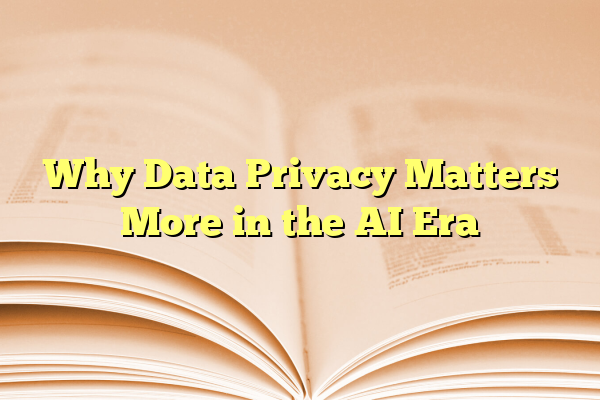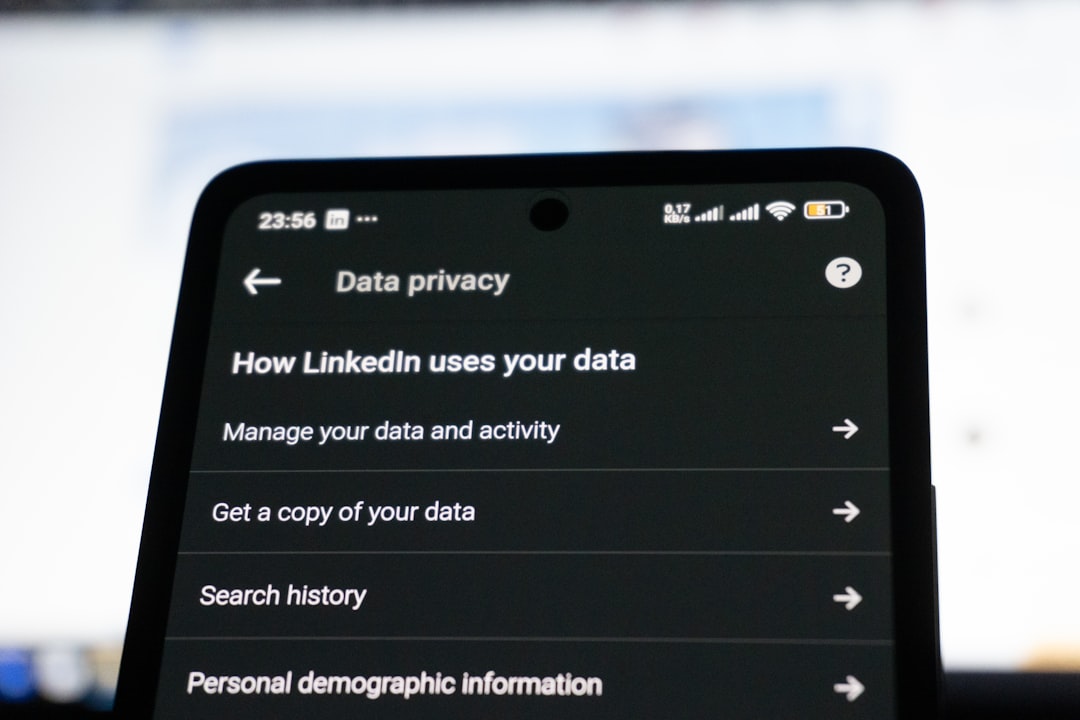
Why Data Privacy Matters More in the AI Era
As artificial intelligence accelerates into the mainstream, it is reshaping industries, fueling innovation, and providing efficiencies never seen before. However, with these advancements comes a pressing concern—data privacy. In the AI era, where algorithms learn, adapt, and evolve based on data input, the importance of safeguarding personal information cannot be overstated. Data is more than just numbers; it is the digital footprint of human behavior, preferences, and even emotions.
What makes data privacy even more crucial today is the vast amount of data being collected, analyzed, and sometimes monetized. From smart home devices to facial recognition software, AI systems rely heavily on user data to function effectively. This growing dependency raises critical ethical questions and presents tangible risks that demand scrutiny and immediate action.
Contents
Why Data Privacy Has Taken Center Stage
In the past, data collection was limited and often localized. Today, data collection is continuous, automatic, and global. AI systems can process vast datasets in real-time, uncovering insights that were once impossible to detect. However, this capability also opens the door to unintended intrusions into personal lives. Whether it’s through predictive models, voice assistants, or image recognition, AI can infer sensitive information—oftentimes without user consent.
Below are some of the reasons why data privacy matters even more in the AI era:
- Volume and Variety of Data: AI requires massive datasets to function efficiently. These datasets often include personal identifiers, health data, transactional records, and behavioral patterns.
- Data as Currency: In the AI economy, data is the new oil. Organizations profit not from the service itself, but from the data generated through usage.
- Risk of Exploitation and Bias: Improperly handled data can perpetuate biases, lead to discriminatory practices, and ultimately harm individuals or groups.
AI and the Erosion of Anonymity
One of the primary concerns in the intersection of AI and data privacy is the erosion of anonymity. In traditional data environments, anonymizing data offered a level of protection. But AI’s advanced capabilities—such as cross-referencing datasets—makes it easier to de-anonymize information.

Consider machine learning algorithms that can accurately identify individuals based on voice samples or even limited location data. When combined with public datasets, AI can paint a highly detailed profile of an individual, from shopping habits to political leanings. This not only breaches privacy, but also poses serious security concerns, such as identity theft and surveillance abuses.
Legal and Ethical Implications
The legal framework around data privacy is often playing catch-up with technological innovation. While there have been strides with regulations like the General Data Protection Regulation (GDPR) in Europe and California Consumer Privacy Act (CCPA) in the U.S., these laws may not comprehensively address all the nuances of AI-driven data usage.
Ethically, the stakes are even higher. People may not fully understand how much data they are sharing, much less how it is being utilized. Companies have a moral obligation to be transparent and uphold ethical standards in data processing. Failing to do so can not only damage reputations but also result in legal penalties and loss of user trust.
The Role of Transparency and Consent
For AI systems to gain public trust, transparency and consent must be foundational. Users should be informed about:
- What data is collected
- How the data is used
- Who has access to the data
- What rights users have in managing their data
However, most privacy policies are long, filled with legal jargon, and designed for compliance rather than user comprehension. Real transparency involves simplifying these policies and issuing clear, actionable options for consent and control.
AI in Public Surveillance: A Growing Concern
Public surveillance powered by AI is another area where data privacy becomes paramount. Cities around the globe utilize facial recognition systems, predictive policing tools, and real-time video analytics. While these systems promise enhanced security, they often compromise civil liberties.

These technologies can track individuals without their knowledge, and in some cases, they disproportionately target marginalized communities. The consequences can range from wrongful arrests to creating an atmosphere of constant monitoring, infringing upon the right to privacy.
How Companies Can Prioritize Data Privacy
Organizations can adopt several best practices to protect user data in AI systems:
- Data Minimization: Collect only the data necessary to perform specific functions. Excessive data collection increases both ethical and legal risks.
- Secure Storage: Implement strong encryption and access controls to safeguard stored information.
- Regular Audits: Conduct regular privacy impact assessments (PIAs) to understand how data is being utilized and whether it complies with current regulations.
- Ethical AI Design: Include privacy-by-design principles in the AI development cycle from inception rather than treating privacy as an afterthought.
The Path Forward
As AI continues to evolve, society must find a balance between innovation and privacy. Governments must update legal frameworks more swiftly, and companies must self-impose rigorous ethical practices. Failure to address data privacy adequately could erode public trust, not just in AI systems, but in technology as a whole.
Public education also plays a crucial role. Users need to be more aware of how their data is used and the tools available to protect themselves. Empowerment through knowledge and regulation is the only sustainable way forward in this new technological era.
Frequently Asked Questions (FAQ)
-
What is data privacy in the context of AI?
Data privacy in AI refers to the practices and policies designed to protect personal data that AI systems collect and process. It includes data governance, user consent, and transparency in data handling. -
Why is AI considered a threat to privacy?
AI can process large volumes of data and uncover patterns that can identify individuals even in anonymized datasets. This power makes it easier to infringe upon privacy unknowingly. -
How can I protect my personal data from AI systems?
You can protect your data by regularly reviewing privacy settings, limiting app permissions, using encrypted communications, and being cautious about the information you share online. -
Are there laws that protect data privacy in AI?
Yes, regulations like GDPR and CCPA offer protections. However, they may still fall short in fully addressing AI-specific scenarios due to the rapidly evolving nature of the technology. -
Can AI be ethical while still using personal data?
Yes, but it requires companies to follow privacy-by-design principles, ensure transparency, and obtain explicit user consent wherever possible.
In conclusion, as AI grows more sophisticated, data privacy should not be considered an afterthought but rather a foundational pillar of its development. Balancing innovation with ethical responsibility is essential to creating a future where technology serves humanity without compromising its dignity.
